Africa remains a little-known continent when it comes to XR creation. And yet, if you take a close look, you’ll find artists who are passionate about the medium, initiatives to disseminate it and a few companies that were able to turn the corner on virtual reality very early on. This is notably the case of BlackRhino VR in Kenya, which has been producing artistic or institutional experiences since 2015. A look back at this adventure with its co-founder Brian Afande.
BlackRhino VR, born in Kenya
Brian Afande – My approach to immersive creation can be compared to a true spiritual odyssey. For a long time, I worked in more traditional industries, including Converse as a brand manager. One day, terrorists attacked the shopping mall where our offices were located. I survived, but many people died that day. I promised myself that I would do something with my life, on my own. That’s when I met Michael Ilako, a filmmaker who was to become my partner at BlackRhino VR.
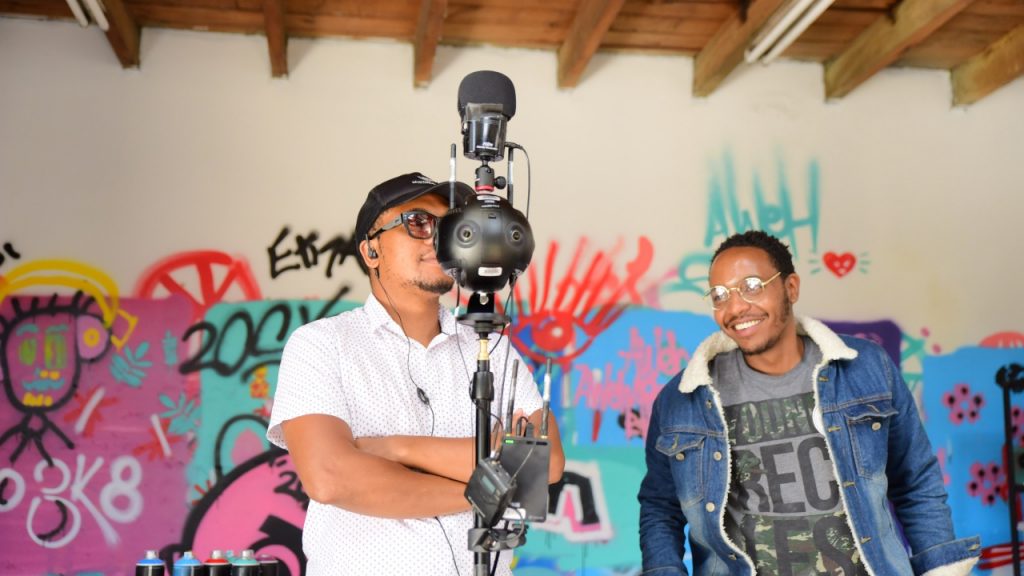
B. A. – It was just when Facebook had acquired Oculus, and I was very intrigued by the business model of this new environment. Michael was making films and working for brands, and I had a computer engineering background. We started experimenting with 360 creation, and voilà!
B. A. – Our ambition was to explore the medium, both the technology and the possible content. In 2014, everything still seemed very young in terms of usage and hardware. But we also wanted to understand how to innovate in African storytelling. We were able to invest in a DK2 developer kit to launch our business. We were directing films with a GoPro rig, which allowed us to start producing branded content. BlackRhino VR was launched.
Africa, the forgotten continent of technology
B. A. – You have to understand the context in Africa, and what it means to want to develop a virtual reality company. It’s a real labour of love! It’s thanks to tenacity, but also love for the medium, that we’re still here. You need access to hardware, software and even tutorials to learn! I often laugh about it, but I’ve amply graduated from the Youtube Premium school. I discovered a lot of things there through total self-learning, with contributions from Chris Milk, Jaunt VR, Félix & Paul Studios… These have become references for us as we move forward.
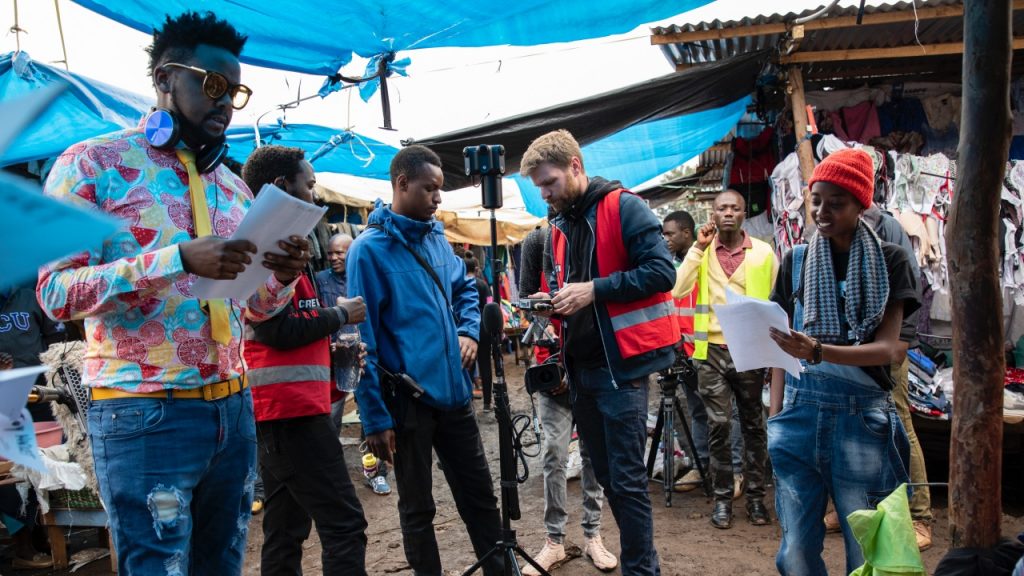
B. A. – Beyond the barrier of specific hardware, there was a whole ecosystem to build. Computers to work on projects, launch renderings… We had to find the means to buy them, the tricks to import them, find network and computing power… And it was a time when you had to buy very expensive Samsung phones. Nothing was easy in that respect, and we were able to count on the support of our friends and family, who sometimes helped us out financially! People didn’t really understand what we wanted to do, and this period was accompanied by a lot of education to spread the idea of virtual reality.
Raising the profile of African XR
B. A. – There is an effort to structure the African XR community, and this is the aim of the Africa XR Report, whose website was unveiled last year (link). Its primary aim is to better identify the companies and individuals behind XR projects on the continent. The report is the result of a long process of consolidating information from 21 countries. In 2016, BlackRhino VR (Kenya) and Electric South (South Africa) were the first to enter the virtual reality market. We quickly met, with a shared desire to move forward together. And it’s the desire of many people across the entire African continent, to have a common impetus.
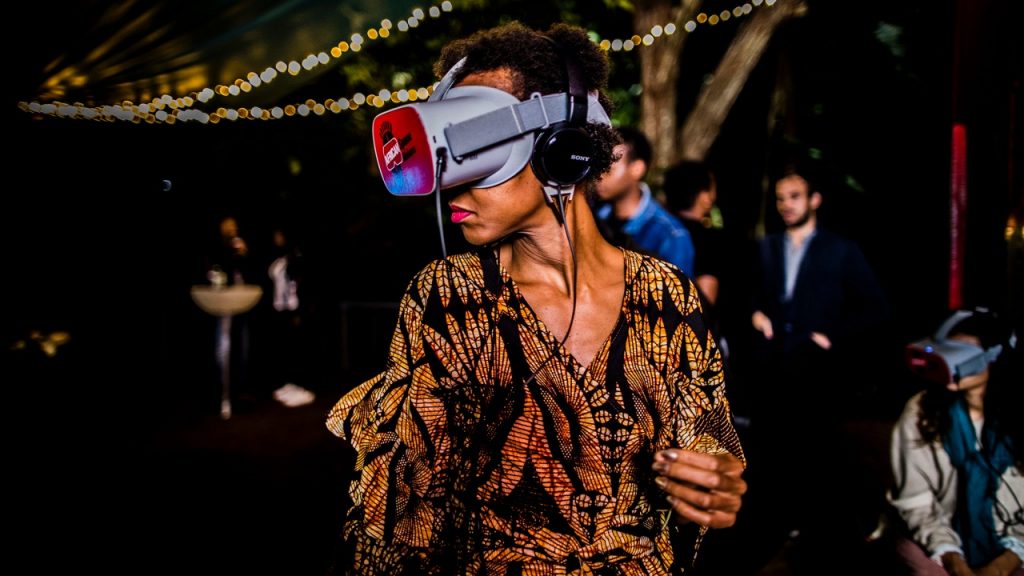
B. A. – We need to think about the means to be put in place, the funding to be found… While the primary aim is to find the necessary equipment, there are also fundamental software issues – many applications are geo-blocked and inaccessible in Africa, like Meta Horizon. We’re not a priority for the GAFAMs, and that’s an undeniable shortcoming! Recently in Europe, I was able to meet French President Emmanuel Macron (during the Création Africa Forum at the Gaîté lyrique in Paris last October), to share these kinds of concerns. We want to participate in an ecosystem that is as broad and inclusive as possible. We need to break down these barriers if we are to hope for real development of XR in Africa.
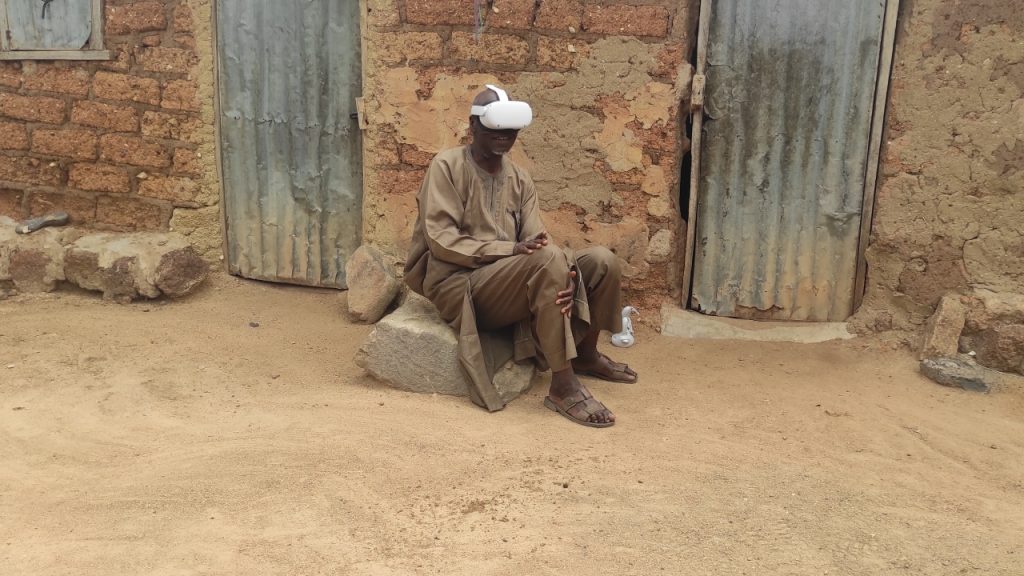
B. A. – We’re also looking for industry standards in production and operation, to better inform us about what’s viable in the long term. Again, we have a lot of online resources, but that’s not enough. Today, we collaborate with a number of companies in Europe and the United States, among others, to facilitate the distribution of our content or certain aspects of production. One of the best examples of this is our co-production with INVR.Space in Berlin to produce AFRICAN SPACE MAKERS, which has been selected for a number of festivals including Venice, Doc Edge and Stereopsia (and also won a prize at the XRMust Awards 2020, editor’s note). So it’s possible! But there’s still a gap to be bridged before young creators can take an interest in XR and be motivated to join us.
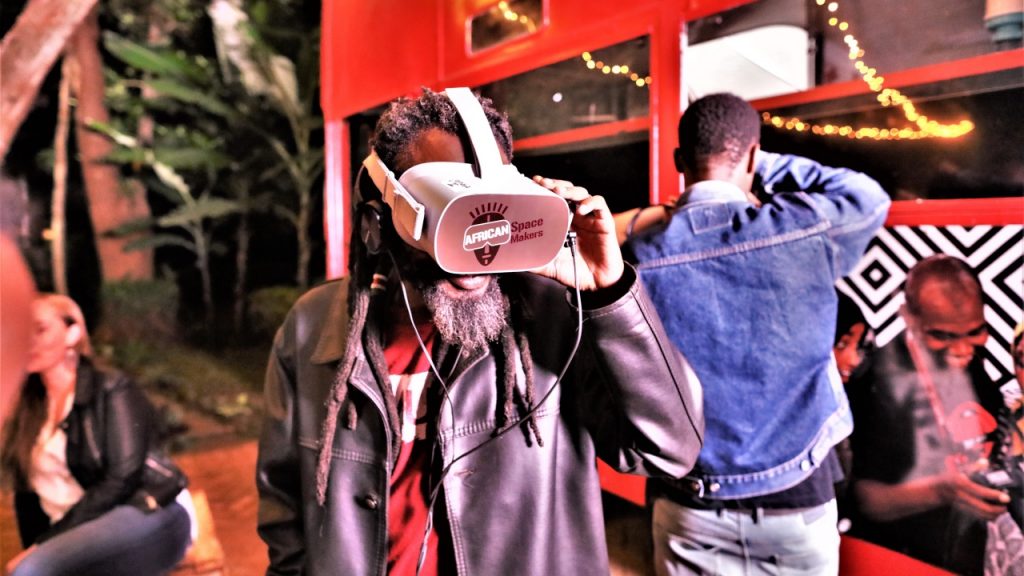
B. A. – The possibility of building international co-productions is essential for us, as it’s the main gateway to accelerating certain projects or opening up our communities to new opportunities. XR is a close-knit global community, and Africa needs to be a strong part of it.
A way for XR content distribution in Africa?
B. A. – Today, XR is based on a dual model: LBVR and online stores. Both are still in their infancy in Africa, with the issues I mentioned earlier. A real missed opportunity is that of phone-accessible stores – The end of Gear VR is a huge waste, as the smartphone market is very dynamic in Africa, and the population well equipped. Here was the possibility of easily distributing 3DOF content. Youtube has recently taken a step backwards on this point too, and it’s a shame. So today, African XR companies need to build their own broadcasting platforms. This is a huge need. Then we can see how we can better develop the broadcasting of interactive and/or 6DOF content.
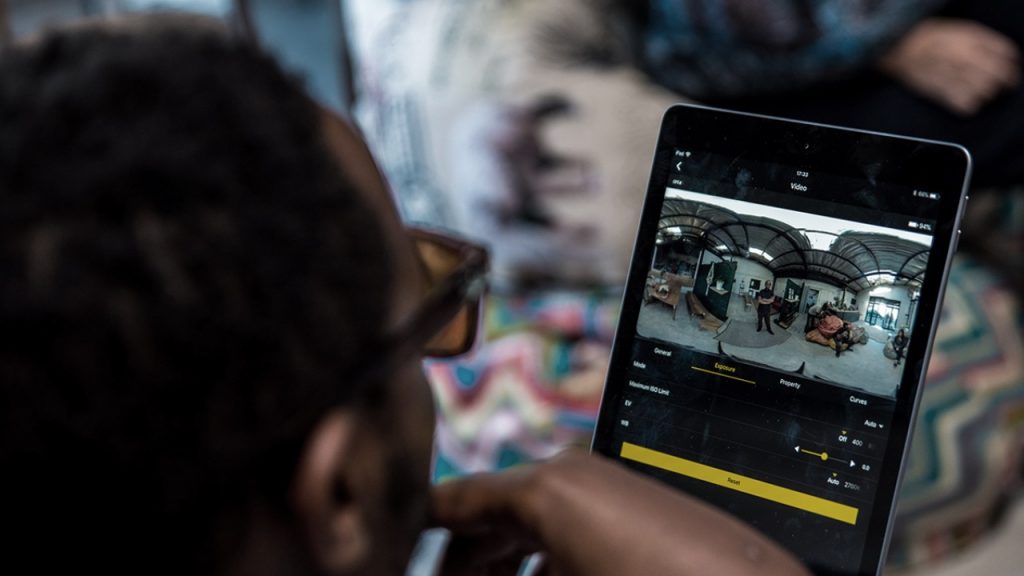
B. A. – I see XR developing very strongly on the VR side, with narrative content and video games already well represented. But we need to think about consumers, who I believe are looking for experiences above all else. The experiential aspect must be at the heart of our projects, whether we’re talking about VR, AR or MR. The incredible potential of mixed reality is to be able to interact with the physical environment. Will the Vision pro be a gas pedal in this direction? I believe so, even if for our audiences in Africa it will be inaccessible for a long time to come. We first need to implement XR better: through smartphones with AR, for example, or 3DOF broadcasting. And facilitate the creation of UGC content.
https://www.africaxrreport.com
Press release: Blackrhino Vr Launch Africa’s First Augmented Reality Cloud Editor And Publishing Platform
BlackRhino VR, an Extended Reality Tech Co., has launched into the market, a groundbreaking Augmented Reality (AR) platform, designed to empower content creators within the creative economy to rapidly build and publish AR content.
Dubbed “MediAR”, the platform is Africa’s first, user-friendly, AR cloud editor and publishing platform that uses the drag and drop technology, which lessens the challenging learning curve associated with coding while producing AR solutions and content.
Speaking during a colourful launch ceremony, BlackRhino VR Chief Executive Officer Brian Afande said the platform is a response to the need to unlock Africa’s creative sector through AR.
Our primary objectives are to empower Africa’s youth, who are the innovators of the future, to broaden their skills set that allows them to scale up innovations as well as to democratize extended reality technologies in order to make them easily accessible so that ultimately, these immersive technologies can actively and positively contribute to Africa’s socio-economic development.
Brian Afande
“We also want to demystify the notion that Africa is only a consumer of technology and demonstrate that there are numerous innovative African technological solutions that are being developed to solve the continent’s challenges,” he added.
MediAR has been designed with a unique and inclusive revenue share model that is based on a pay-per-view service that allows content creators and brands to co-exist in a digital ecosystem.
BlackRhino VR is urging content creators across Africa to leverage the platform to perpetuate the development of an Internet economy that will in turn create jobs, reduce poverty, and contribute to the continent’s development.
The global extended reality (XR) – which includes Virtual Reality, Augmented Reality and Mixed Reality – market is valued at USD$29.26 billion in 2022 and is projected to rise to over USD$100 billion by 2026.
Longino Muluka, Head of AR/VR at BlackRhino VR asserts that the integration of XR technology into other sectors of the economy is key for it to have a positive impact on Africa’s economy and future.
Augmented Reality has the ability to create immersive experiences where linear blueprints seamlessly transform into 3D models. For instance, we are witnessing a new era where technology and creativity intertwine to create powerful visualization tools adding immense value to the dynamic construction industry.
Longino Muluka
This technology can also revolutionise the education sector in order to bridge the current skills mismatch between those acquired in learning institutions and those required by the job market.
“The seismic shift for education will come from deploying Augmented Reality in a learning context where dynamic learning environments will be created as abstract concepts turning classrooms into immersive experiences,” Shamina Rajab, the BlackRhino VR Managing Director said.
In the convergence of Augmented Reality and farming, we are witnessing not just technological innovation but a catalyst for positive socio-economic change. By bridging gaps in knowledge access, AR democratizes agricultural insights, offering farmers the tools to make informed decisions.
Abraham Kyalo, BlackRhino VR’s COO
BlackRhino VR anticipates that MediAR will facilitate the creation of a non-existent tertiary economy and ecosystem specializing in AR goods, products and services.
The platform was developed with funding of approximately 180,000 EUR from ACP-EU, which is an Organisation of the African, Caribbean and Pacific Group of States (OACPS) financed by the European Union (EU). BlackRhino VR was one of 20 creative and cultural businesses from 8 East Africa countries that made the short list in the Ignite Culture programme that is geared at supporting the growth of the cultural and creative sector in the region.
XR Innovation Summit 2023: Driving Innovation and Social Impact with Extended Reality (XR) in Africa.
“There are a lot of opportunities in Africa for immersive storytelling” – Ingrid Kopp (Electric South)
“XR creators have a role to play in the development of the immersive industry in Africa” – Arome Ibrahim (Experis Immersive)
Report⎪The Fak’ugesi African Digital Innovation Festival 2022
XR Through The Womanist Gaze 1/3: Education for Women, with Judith Okonkwo
XR Through The Womanist Gaze 3/3: Preserving Women Music History, with Yolanda Barton
”We are creating the blueprint as we go along” – Tulanana Bohela (Tanzania)

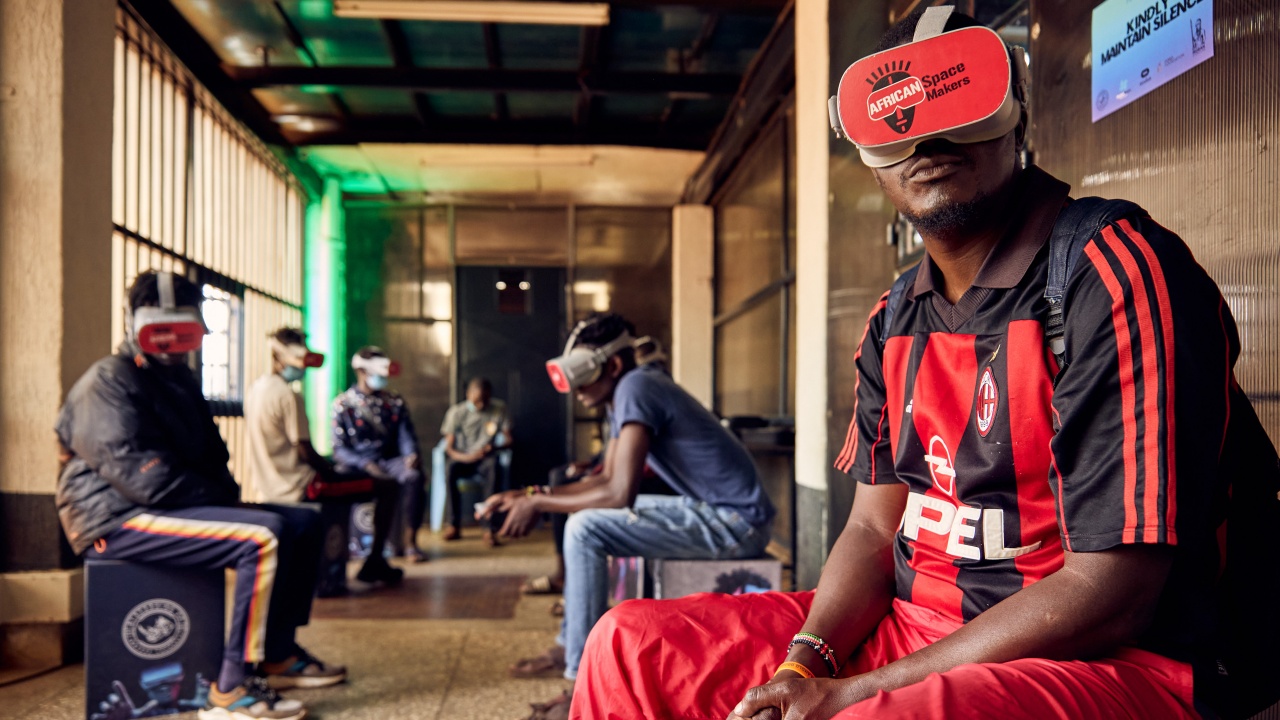

Leave a Reply
You must be logged in to post a comment.